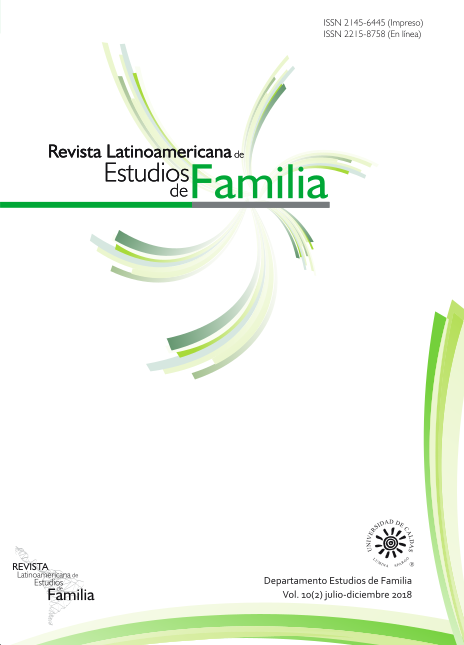Autores/as
Resumen
Objetivo. La maternidad como construcción social refleja distintas aristas y conflictos de una colectividad. Esta investigación buscó comprender cómo se construyen las distintas maternidades en Cuenca-Ecuador, cuando las consideramos asociadas a la etnicidad y a la clase, además del género. Metodología. Para esto, hemos establecido un enfoque epistemológico interseccional que utiliza como técnica las historias de vida. Resultados y conclusión. En Cuenca la maternidad continúa siendo una aspiración para las mujeres de clase media, pues aún se la entiende como una dimensión importante de la feminidad y, además, existe un tipo hegemónico de maternidad con elementos económicos, etarios, religiosos y culturales bien definidos. También, confirmamos que el sexismo es una realidad innegable en las interacciones de los cuencanos y determina, en gran medida, cómo las mujeres asumen su maternidad. En general, este estudio evidencia la necesidad de conformar estructuras sociales más amigables con el ejercicio de la maternidad.
Palabras clave
Citas
Badinter, E. (2010). La mujer y la madre. Madrid, España: La esfera de los libros.
Benería, L. (1999). Mercados globales, Género y el hombre de Davos. La Ventana, (10),8-48.
Chodorow, N. (1984). El ejercicio de la maternidad. Barcelona, España: Gedisa.
Cuenca, aún religiosa pero menos católica. (28 de julio de 2013). El Mercurio, p. 2b
Collins, P.H. (2000). Pensamiento Feminista Negro: el conocimiento, la conciencia y la política de empoderamiento (2ª ed.). Nueva York: Routledge.
De Beauvoir, S. (1969). El segundo sexo. Buenos Aires, Argentina: Siglo Veinte.
El Mercurio. (2009). Inec presenta datos estadísticos en Cuenca. Cuenca, Ecuador. p. 4a.
Faur, E. (2015). El maternalismo en su laberinto. Políticas Sociales y Cuidado Infantil en Argentina. Revista Latinoamericana de Estudios de Familia, 7, 45-61.
Mancero, M. (2012). Nobles y Cholos: La disputa sobre un proyecto hegemónico regional. Cuenca 1995-2005. Quito, Ecuador: FLACSO.
Pineda, J. (2010). Familia postmoderna popular, masculinidades y economía del cuidado. Revista Latinoamericana de Estudios de Familia, 2, 51-78.
Sánchez, G. y Palacio, M. (2013). Cuidado familiar, orden discursivo hegemónico y contrahegemónico. Revista Latinoamericana de Estudios de Familia, 5, 29-45.
Scheper, N. (1997). La muerte sin llanto. Barcelona, España: Ariel.
SENPLADES. (2014). «INEC». Recuperado de http://app.sni.gob.ec/sni-link/sni/Portal%20SNI%20 2014/FICHAS%20F/0101_CUENCA_AZUAY.pdf.
Viveros, M. (2016). La interseccionalidad: una aproximación situada a la dominación. Debate Feminista, 1-17.

 PDF
PDF
 FLIP
FLIP


























